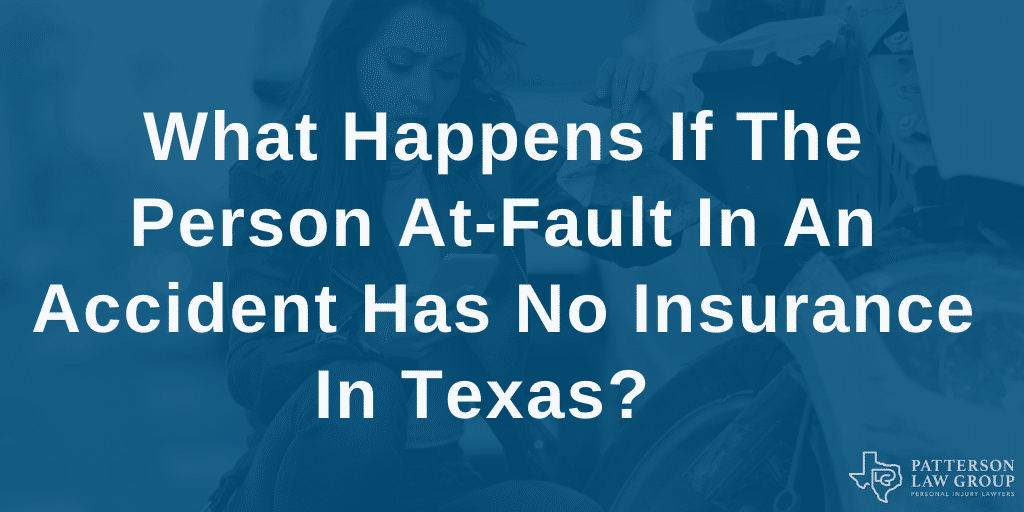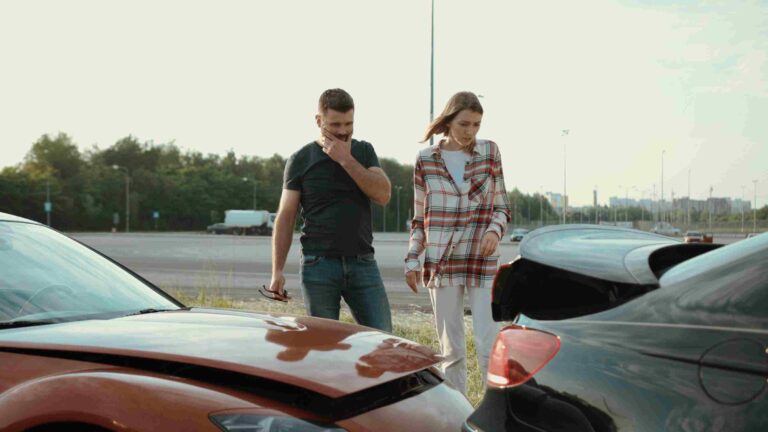Read this article—it contains the most important advice you will ever receive from a personal injury lawyer. Take the advice to heart because it could protect your family from financial catastrophe.
As an initial matter, the title of this article uses the term “accident”—this is not the proper term. When a person is at-fault, a collision is, by definition, not an accident.
If you or your loved one is injured in a motor vehicle wreck—who is going to pay your medical bills, who is going to pay to fix or replace your vehicle, who is going to compensate you for your lost wages?
About nine out of ten people who come into my office after being injured in a motor vehicle wreck arrive with the improper assumption that the at-fault driver and/or their insurer will be able to fully compensate for all damages.
This improper assumption is equally held by people across all education levels and professions.
In meeting with these potential clients, I am often required to raise a hypothetical situation where I place the potential client at fault in a wreck that causes someone else to incur significant damages. I then ask how the potential client would pay those damages? I get one of two responses.
The first response is, “I’m fully insured.” As illustrated below, this is rarely true.
The second and more common response comes in the form of prolonged silence—as the harsh and unfair reality hits home.
I made the move from commercial law to personal injury attorney over five years ago.
I quickly learned how fast a motor vehicle wreck could turn your life upside down—physically, mentally, and most certainly financially.
I also quickly learned that I did not have adequate insurance protection in place for my family—you are very likely in the same boat.
Legal claims flowing from motor vehicle collisions can be boiled down to three primary components—liability, damages, and collectability. Clear liability and catastrophic injuries make for a strong legal case—and a clear path to a judgment.
But that judgment can rarely be turned into actual money to pay the bills and damages incurred by a client. Most people are judgment proof because they do not have sufficient assets or because of financial planning. Thus, collectability in a personal injury case is almost always capped at the limits of insurance.
Your mind may immediately go to the fact that all Texans are legally required to carry auto insurance. Yes, that law is on the books, but relying on others to adequately insure your family is a mistake of the highest order.
Depending on what source you pull, somewhere between eight and twenty-three percent of Texas drivers are wholly uninsured. That alone should catch your attention.
But, what is truly scary is that our experience has shown that most “insured” Texas drivers carry state minimum policy limits—$30,000 per person/$60,000 per occurrence.
Thus, if you or your loved one is injured in a motor vehicle wreck, the overwhelming odds are that the person who hit you is: (1) personally judgment proof, and (2) either uninsured or carrying no more than state minimum insurance—which will barely cover a trip to the ER with minimum diagnostic testing.
Read that sentence again. It is a sobering dose of truth.
Speak To A Car Accident Lawyer Now
So How Do You Protect Your Family When The Person At-Fault In An Accident Has No Insurance In Texas?
As a personal injury attorney, I have a love/hate relationship with insurance companies, so there is a bit of irony in the answer: buy more insurance.
What Kind Of Insurance Should I Buy To Protect Myself?
Uninsured/Underinsured Motorist Coverage (UM/UIM) and personal injury protection (PIP) coverage. Most people reading this article are likely carrying more in liability coverage than in UM/UIM coverage. This means that you are insuring the public to a greater extent than you are insuring your family.
That should never be the case. Your insurance carrier is legally required to offer you UM/UIM coverage, but they do a poor job of explaining what it is and why it is important. This is likely because UM/UIM premiums are cheap—meaning carriers do not make much money selling the coverage.
Regardless, you should immediately contact your agent and raise your UM/UIM coverage—I suggest carrying at least $250,000 in UM/UIM coverage.
It will not cost you as much as you think. And more importantly, this is not an area where you want to save a penny—the risk to you and your family is too great.
You cannot trust random Texas drivers to protect your own family. While you are at it, buy $10,000 in PIP coverage. PIP is no-fault coverage that reimburses you for medical bills and lost wages after a personal injury.
Like UM/UIM coverage, it is cheap—which is probably why your agent did not tell you about it.
Speak To A Car Accident Lawyer Now
So, what happens when the person at-fault in a motor vehicle collision has no insurance?
The answer depends on whether you have taken the initiative of properly insuring yourself and your family.
If you have, you have a direct right of action against your insurance company to cover your injuries and damages.
If you have not, you will likely be stuck with injuries, damages, and debt. Never insure others for more than your family. Adding the coverages addressed in this article may cost you a few hundred dollars a year.
Failing to make these changes could put you into bankruptcy. I do not say this lightly. I have seen great people brought to their financial knees from not carrying sufficient insurance.
Author: Tennessee W. Walker
Tennessee W. Walker is a personal injury attorney at Patterson Law Group serving Fort Worth, Arlington, and San Antonio areas. Tennessee is a former Shareholder at Harris, Finley & Bogle, P.C., one of the finest commercial law firms in the DFW area. He is a past President of the Tarrant County Young Lawyers Association; a Texas Bar Foundation Fellow; a Tarrant County Bar Foundation Fellow; a Tarrant County Bar Association Board Member; and a member of the State Bar of Texas Pattern Jury Charge Committee on Negligence. Tennessee has a passion for serving the Fort Worth community. He is most proud of (and passionate about) his service with Big Brothers Big Sisters. Tennessee is a board member and has served as a Big Brother since 2011. When not working, Tennessee and his wife Lauren spend most of their time trying to keep up with their boys, Renner and Cooper.












